Launched in 2019, Terrapin EdTalks was created to showcase and promote the College of Education’s research and scholarship. The annual event brings together faculty experts, staff and leading voices in the field of education, human development, and psychology to elevate research and spur critical conversations that will shape policies and practices in Maryland and beyond.
Terrapin EdTalks 2024
Promoting Holistic Well-being in Education and Beyond
Monday, April 8 | 5:30 - 8 P.M.
Clarice Smith Performing Arts Center
Register
Five College of Education faculty experts will delve into a diverse range of topics aimed at fostering health and wellness in educational environments and broader communities. From advocating for culturally sensitive mental health practices to empowering children to challenge inequalities to identifying practical strategies to disrupt gendered racism, these talks promise to spur critical conversations that will lead to a more healthy society.
Featured Speakers:
Melanie Killen, Professor of Human Development
Children as agents of change for promoting justice and fairness
Children who are excluded from their peers based on their gender, race, and ethnicity are at risk for stress, anxiety, depression, and social withdrawal. Surprisingly, schools lack a context for discussing what underlies social exclusion. What children think about these issues remains a mystery for most educators. Killen introduces the Developing Inclusive Youth program to empower children to challenge inequalities and reject stereotypical expectations, with the goal of promoting belonging, inclusion and social justice.
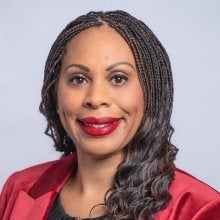
Jioni Lewis, Associate Professor of Counseling Psychology
How to survive and thrive in the face of gendered racism
Black women experience unique stressors stemming from the intersections of their race and gender. Lewis will discuss the impact of gendered racism on the mental and physical health of Black women, share strategies to disrupt gendered racism in various aspects of everyday life, and explore how to cultivate radical healing to combat gendered racism.
Rossina Zamora Liu, Assistant Professor of Urban Education
Why are you the person to tell this story?
Researchers and educators must contend with who they are in relation to systemic racism and how their proximity to structural and instructional power impacts their telling of other people’s stories. Liu, a multi-ethnic, Southeast Asian American woman and non-Black Critical Race educator of Color, discusses the importance of critical reflexivity when working with, and learning from, communities of Color. She asserts that zine-making is one way to understand how our histories, experiences, and relationships are all intimately connected. It can help illuminate the human-presence, experiential expertise, and origin stories that are essential to racial healing and racial justice. As she has always taught in her classes, “You must know why you are the person telling the story.”
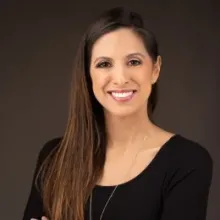
Jessica Diaz McKechnie, Assistant Clinical Professor of School Counseling
A new program to improve counseling services for immigrant and refugee students
Mckechnie unveils a new initiative: a pioneering certificate program designed to seamlessly connect the practices of school counselors and the unique needs of immigrant and refugee students and families. It bridges a gap in the understanding of a complex system where every path to "here" is distinctly different.

Cixin Wang, Associate Professor of School Psychology
How to support Asian American students who experience racism and mental health challenges
Asian American youth are often labeled as “model minorities,” yet beneath this stereotype lies a reality marked by discrimination and its intertwined impact on mental health. Suicide stands as the leading cause of death among Asian American youth ages 15 – 24. Wang discusses the importance of culturally tailored mental health interventions and the critical role parents play in fostering conversations about race and racism.
Panelists:
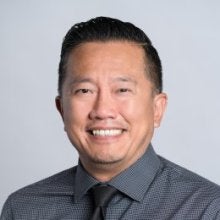
William Ming Liu (Moderator)
Chair and Professor, University of Maryland College of Education Department of Counseling, Higher Education, and Special Education
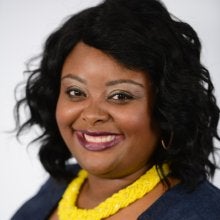
PhiXavier Holmes
Professional School Counseling Instructional Specialist, Prince George’s County Public Schools
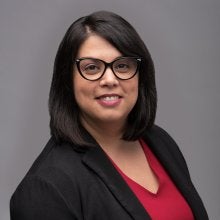
Ileana Gonzalez
Associate Clinical Professor of School Counseling

Jonathan Thio
Graduate Student, University of Maryland College of Education
Elevating Teachers and Teaching
David Blazar, Associate Professor Black teachers make an incredible difference in kids’ lives and on their educational outcomes. However, there are far too few Black teachers in P-12 public schools, a trend that has not changed much in 30 years despite considerable and growing policy interest. Associate Professor of Education Policy David Blazar encourages us to create race-conscious pathways into teaching that begin early in children’s educational careers. | Segun Eubanks, Professor of Practice Building school district-university partnerships has become a common clarion call in education (mostly in higher education). Yet making such partnerships real is easier said than done. Segun Eubanks, director of the Center for Educational Innovation and Improvement, discusses the unique relationship between the University of Maryland, College Park, and Prince George’s County Public Schools. He shares how they use improvement science as a vehicle for building meaningful and genuine partnerships that lead to better and more equitable outcomes. | ||||||||||||||||||||||||||||||||||||||||||||||||||||||||||||||||||||||||||||||||||||||||||||||||||||||||||||||||||||||||||||||||||||||||||||||||||||||||||||||||||||||||||||||||||||||||||||||||||||||||||||||||||||||||||||||||||||||||||||||||||||||||||||||||||||||||||||||||||||||||||||||||||||||||||||||||||||||||||||||||||||||||||||||||||||||||||||||||||||||||||||||||||||||||||||||||||||||||||||||||||||||||||||||||||||||||||||||||||||||||||||||||||||||||||||||||||||||||||||||||||||||||||||||||||||||||||||||||||||||||||||||||||||||||||||||||||||||||||||||||||||||||||||||||||||||||||||||||||||||||||||||||||||||||||||||||||||||||||||||||||||||||||||||||||||||||||||||||||||||||||||||||||||||||||||||||||||||||||||||||||||||||||||||||||||||||||||||||||||||||||||||||||||||||||||||||||||||||||||||||||||||||||||||||||||||||||||||||||||||||||||||||||||||||||||||||||||||||||||||||||||||||||||||||||||||||||||||||||||||||||||||||||||||||||||||||||||||||||||||||||||||||||||||||||||||||||||||||||||||
Christy Tirrell-Corbin, Clinical Professor Research consistently shows that one caring educator can mitigate the effects of trauma. However, caring too often comes at a cost: educator secondary traumatic stress and burnout (serious mental health and workforce issues). Clinical Professor of Human Development Christy Tirrell-Corbin explains how research-practice-policy partnerships unite key community members around data on local needs and assets, creating actionable, trauma-informed conditions where educators and students can thrive. | Jade Wexler, Associate Professor Many middle and high school students struggle to read and understand text, making it difficult to learn content they need to succeed in school and beyond. To support students, all teachers school-wide need to provide evidence-based literacy instruction. However, teachers have varying levels of skill and other competing priorities. Jade Wexler, associate professor of special education, explains innovative ways to support teachers as they help students understand and learn from text. | ||||||||||||||||||||||||||||||||||||||||||||||||||||||||||||||||||||||||||||||||||||||||||||||||||||||||||||||||||||||||||||||||||||||||||||||||||||||||||||||||||||||||||||||||||||||||||||||||||||||||||||||||||||||||||||||||||||||||||||||||||||||||||||||||||||||||||||||||||||||||||||||||||||||||||||||||||||||||||||||||||||||||||||||||||||||||||||||||||||||||||||||||||||||||||||||||||||||||||||||||||||||||||||||||||||||||||||||||||||||||||||||||||||||||||||||||||||||||||||||||||||||||||||||||||||||||||||||||||||||||||||||||||||||||||||||||||||||||||||||||||||||||||||||||||||||||||||||||||||||||||||||||||||||||||||||||||||||||||||||||||||||||||||||||||||||||||||||||||||||||||||||||||||||||||||||||||||||||||||||||||||||||||||||||||||||||||||||||||||||||||||||||||||||||||||||||||||||||||||||||||||||||||||||||||||||||||||||||||||||||||||||||||||||||||||||||||||||||||||||||||||||||||||||||||||||||||||||||||||||||||||||||||||||||||||||||||||||||||||||||||||||||||||||||||||||||||||||||||||||
Jing Liu, Assistant Professor Formative feedback can improve both teachers’ instruction and their students’ outcomes. Yet, the average teacher in the U.S. has limited access to such feedback because conventional classroom observations are labor intensive, costly and subject to evaluators’ bias. Jing Liu, assistant professor of education policy, offers an affordable, scalable and effective tool called M-Powering Teachers to complement human-based classroom observation tools. Combining cutting-edge machine learning, rich educational theory and behavioral sciences, M-Powering Teachers creates automated measures on complex teaching practices and provides educators with nuanced, specific, actionable feedback. | Doug Lombardi, Associate Professor People are flooded with information, much of which is generated by nefarious actors spreading disinformation and denial. In the midst of this deluge, teachers face challenges educating students on fundamental scientific, historical, social and civic principles. Doug Lombardi, associate professor of human development, makes the case that effective teaching can counter disinformation and misinformation, especially when teachers collaborate with researchers to develop and use instructional tools and strategies that support students’ critical thinking skills. | ||||||||||||||||||||||||||||||||||||||||||||||||||||||||||||||||||||||||||||||||||||||||||||||||||||||||||||||||||||||||||||||||||||||||||||||||||||||||||||||||||||||||||||||||||||||||||||||||||||||||||||||||||||||||||||||||||||||||||||||||||||||||||||||||||||||||||||||||||||||||||||||||||||||||||||||||||||||||||||||||||||||||||||||||||||||||||||||||||||||||||||||||||||||||||||||||||||||||||||||||||||||||||||||||||||||||||||||||||||||||||||||||||||||||||||||||||||||||||||||||||||||||||||||||||||||||||||||||||||||||||||||||||||||||||||||||||||||||||||||||||||||||||||||||||||||||||||||||||||||||||||||||||||||||||||||||||||||||||||||||||||||||||||||||||||||||||||||||||||||||||||||||||||||||||||||||||||||||||||||||||||||||||||||||||||||||||||||||||||||||||||||||||||||||||||||||||||||||||||||||||||||||||||||||||||||||||||||||||||||||||||||||||||||||||||||||||||||||||||||||||||||||||||||||||||||||||||||||||||||||||||||||||||||||||||||||||||||||||||||||||||||||||||||||||||||||||||||||||||||
Outside the Classroom: Learning, Development, and Well-being in Informal Spaces
| Natasha Cabrera, Professor Money and love: Fathers' contributions to their children's development | Kimberly Griffin, Professor and Associate Dean of Graduate Studies and Faculty Affairs Being better mentors: Building our capacity to care [or just better mentoring] | ||||||||||||||||||||||||||||||||||||||||||||||||||||||||||||||||||||||||||||||||||||||||||||||||||||||||||||||||||||||||||||||||||||||||||||||||||||||||||||||||||||||||||||||||||||||||||||||||||||||||||||||||||||||||||||||||||||||||||||||||||||||||||||||||||||||||||||||||||||||||||||||||||||||||||||||||||||||||||||||||||||||||||||||||||||||||||||||||||||||||||||||||||||||||||||||||||||||||||||||||||||||||||||||||||||||||||||||||||||||||||||||||||||||||||||||||||||||||||||||||||||||||||||||||||||||||||||||||||||||||||||||||||||||||||||||||||||||||||||||||||||||||||||||||||||||||||||||||||||||||||||||||||||||||||||||||||||||||||||||||||||||||||||||||||||||||||||||||||||||||||||||||||||||||||||||||||||||||||||||||||||||||||||||||||||||||||||||||||||||||||||||||||||||||||||||||||||||||||||||||||||||||||||||||||||||||||||||||||||||||||||||||||||||||||||||||||||||||||||||||||||||||||||||||||||||||||||||||||||||||||||||||||||||||||||||||||||||||||||||||||||||||||||||||||||||||||||||||||||||
| William Ming Liu, Professor and Chair of the Department of Counseling, Higher Education and Special Education Being on white time & living in white space | Geetha Ramani, Associate Professor of Human Development and Quantitative Methodology Families count: Engaging playful learning at home for math success | ||||||||||||||||||||||||||||||||||||||||||||||||||||||||||||||||||||||||||||||||||||||||||||||||||||||||||||||||||||||||||||||||||||||||||||||||||||||||||||||||||||||||||||||||||||||||||||||||||||||||||||||||||||||||||||||||||||||||||||||||||||||||||||||||||||||||||||||||||||||||||||||||||||||||||||||||||||||||||||||||||||||||||||||||||||||||||||||||||||||||||||||||||||||||||||||||||||||||||||||||||||||||||||||||||||||||||||||||||||||||||||||||||||||||||||||||||||||||||||||||||||||||||||||||||||||||||||||||||||||||||||||||||||||||||||||||||||||||||||||||||||||||||||||||||||||||||||||||||||||||||||||||||||||||||||||||||||||||||||||||||||||||||||||||||||||||||||||||||||||||||||||||||||||||||||||||||||||||||||||||||||||||||||||||||||||||||||||||||||||||||||||||||||||||||||||||||||||||||||||||||||||||||||||||||||||||||||||||||||||||||||||||||||||||||||||||||||||||||||||||||||||||||||||||||||||||||||||||||||||||||||||||||||||||||||||||||||||||||||||||||||||||||||||||||||||||||||||||||||||
| Campbell Scribner, Assistant Professor of Education Nothing to $!&#ing cheer about | Stephanie Timmons Brown, Executive Director of Mathletics More than an athlete: Engaging Black and brown youth in sports data | ||||||||||||||||||||||||||||||||||||||||||||||||||||||||||||||||||||||||||||||||||||||||||||||||||||||||||||||||||||||||||||||||||||||||||||||||||||||||||||||||||||||||||||||||||||||||||||||||||||||||||||||||||||||||||||||||||||||||||||||||||||||||||||||||||||||||||||||||||||||||||||||||||||||||||||||||||||||||||||||||||||||||||||||||||||||||||||||||||||||||||||||||||||||||||||||||||||||||||||||||||||||||||||||||||||||||||||||||||||||||||||||||||||||||||||||||||||||||||||||||||||||||||||||||||||||||||||||||||||||||||||||||||||||||||||||||||||||||||||||||||||||||||||||||||||||||||||||||||||||||||||||||||||||||||||||||||||||||||||||||||||||||||||||||||||||||||||||||||||||||||||||||||||||||||||||||||||||||||||||||||||||||||||||||||||||||||||||||||||||||||||||||||||||||||||||||||||||||||||||||||||||||||||||||||||||||||||||||||||||||||||||||||||||||||||||||||||||||||||||||||||||||||||||||||||||||||||||||||||||||||||||||||||||||||||||||||||||||||||||||||||||||||||||||||||||||||||||||||||||
How the College of Education is paving the way to advance equity in Maryland and beyond
| Patricia A. Alexander, Distinguished University Professor The Non-Smart" Use of Smart Technologies: The New Digital Divide for Today's iGeneration | Nathan Fox, Distinguished University Professor Experience and the brain | ||||||||||||||||||||||||||||||||||||||||||||||||||||||||||||||||||||||||||||||||||||||||||||||||||||||||||||||||||||||||||||||||||||||||||||||||||||||||||||||||||||||||||||||||||||||||||||||||||||||||||||||||||||||||||||||||||||||||||||||||||||||||||||||||||||||||||||||||||||||||||||||||||||||||||||||||||||||||||||||||||||||||||||||||||||||||||||||||||||||||||||||||||||||||||||||||||||||||||||||||||||||||||||||||||||||||||||||||||||||||||||||||||||||||||||||||||||||||||||||||||||||||||||||||||||||||||||||||||||||||||||||||||||||||||||||||||||||||||||||||||||||||||||||||||||||||||||||||||||||||||||||||||||||||||||||||||||||||||||||||||||||||||||||||||||||||||||||||||||||||||||||||||||||||||||||||||||||||||||||||||||||||||||||||||||||||||||||||||||||||||||||||||||||||||||||||||||||||||||||||||||||||||||||||||||||||||||||||||||||||||||||||||||||||||||||||||||||||||||||||||||||||||||||||||||||||||||||||||||||||||||||||||||||||||||||||||||||||||||||||||||||||||||||||||||||||||||||||||||||
| Sharon Fries-Britt, Professor and Distinguished Scholar-Teacher Advancing the nation: Investing in the education of Black collegians | Imani Goffney, Assistant Professor of Mathematics Education From Oakland to Wakanda: Transforming mathematics classrooms to become equitable and empowering spaces for Black and brown students | ||||||||||||||||||||||||||||||||||||||||||||||||||||||||||||||||||||||||||||||||||||||||||||||||||||||||||||||||||||||||||||||||||||||||||||||||||||||||||||||||||||||||||||||||||||||||||||||||||||||||||||||||||||||||||||||||||||||||||||||||||||||||||||||||||||||||||||||||||||||||||||||||||||||||||||||||||||||||||||||||||||||||||||||||||||||||||||||||||||||||||||||||||||||||||||||||||||||||||||||||||||||||||||||||||||||||||||||||||||||||||||||||||||||||||||||||||||||||||||||||||||||||||||||||||||||||||||||||||||||||||||||||||||||||||||||||||||||||||||||||||||||||||||||||||||||||||||||||||||||||||||||||||||||||||||||||||||||||||||||||||||||||||||||||||||||||||||||||||||||||||||||||||||||||||||||||||||||||||||||||||||||||||||||||||||||||||||||||||||||||||||||||||||||||||||||||||||||||||||||||||||||||||||||||||||||||||||||||||||||||||||||||||||||||||||||||||||||||||||||||||||||||||||||||||||||||||||||||||||||||||||||||||||||||||||||||||||||||||||||||||||||||||||||||||||||||||||||||||||||
| Julie J. Park, Associate Professor of Education Race on campus: Debunking myths with data | |||||||||||||||||||||||||||||||||||||||||||||||||||||||||||||||||||||||||||||||||||||||||||||||||||||||||||||||||||||||||||||||||||||||||||||||||||||||||||||||||||||||||||||||||||||||||||||||||||||||||||||||||||||||||||||||||||||||||||||||||||||||||||||||||||||||||||||||||||||||||||||||||||||||||||||||||||||||||||||||||||||||||||||||||||||||||||||||||||||||||||||||||||||||||||||||||||||||||||||||||||||||||||||||||||||||||||||||||||||||||||||||||||||||||||||||||||||||||||||||||||||||||||||||||||||||||||||||||||||||||||||||||||||||||||||||||||||||||||||||||||||||||||||||||||||||||||||||||||||||||||||||||||||||||||||||||||||||||||||||||||||||||||||||||||||||||||||||||||||||||||||||||||||||||||||||||||||||||||||||||||||||||||||||||||||||||||||||||||||||||||||||||||||||||||||||||||||||||||||||||||||||||||||||||||||||||||||||||||||||||||||||||||||||||||||||||||||||||||||||||||||||||||||||||||||||||||||||||||||||||||||||||||||||||||||||||||||||||||||||||||||||||||||||||||||||||||||||||||||||